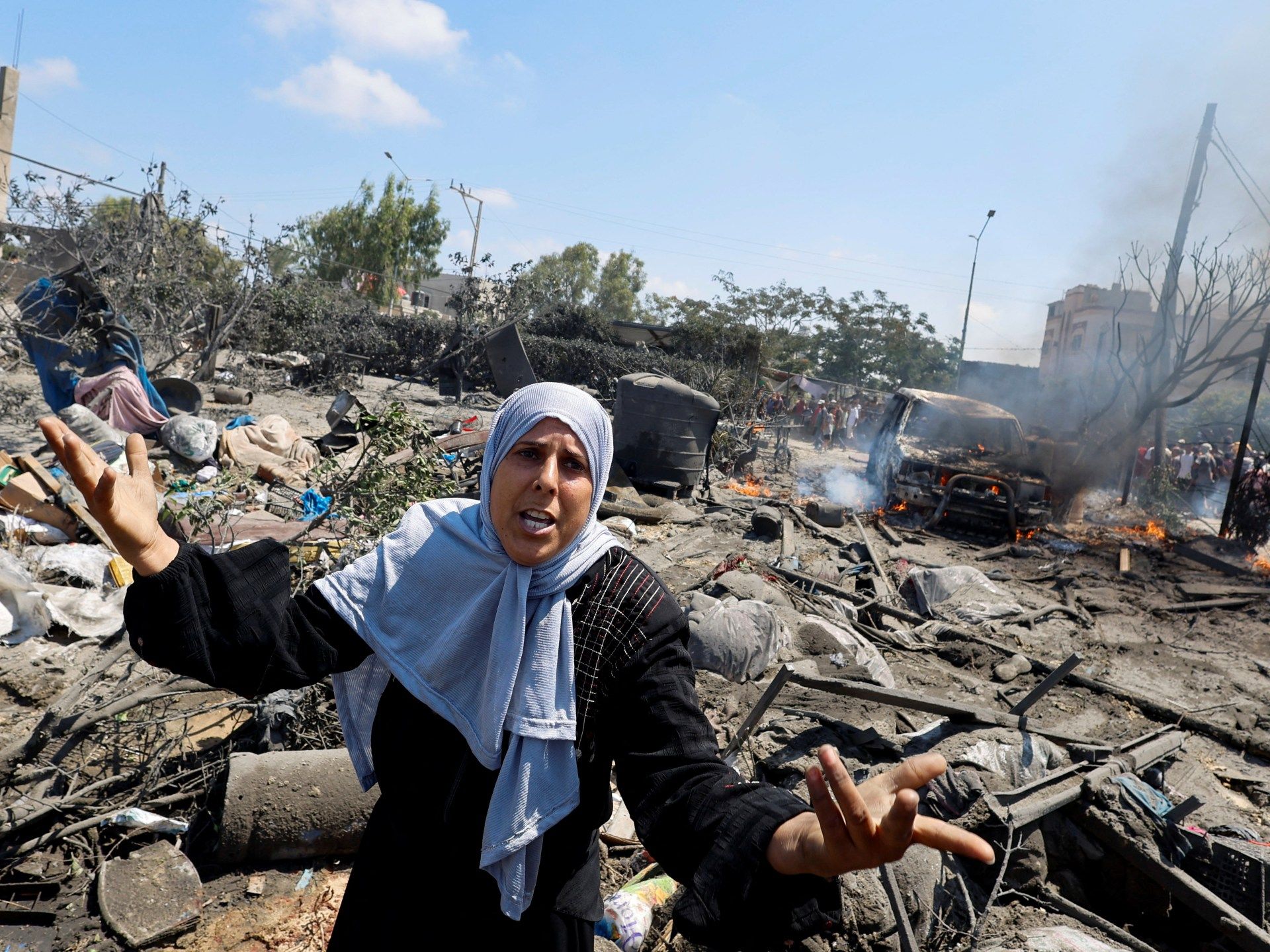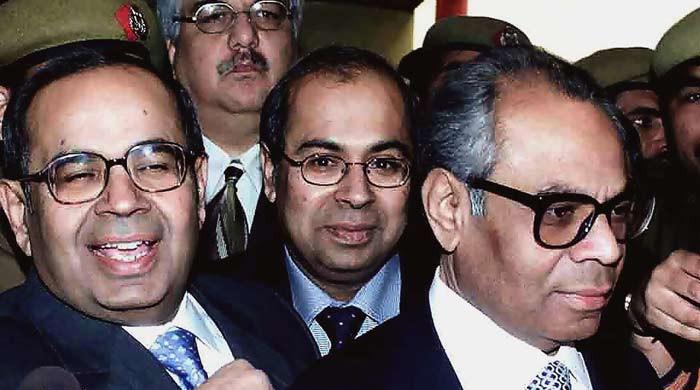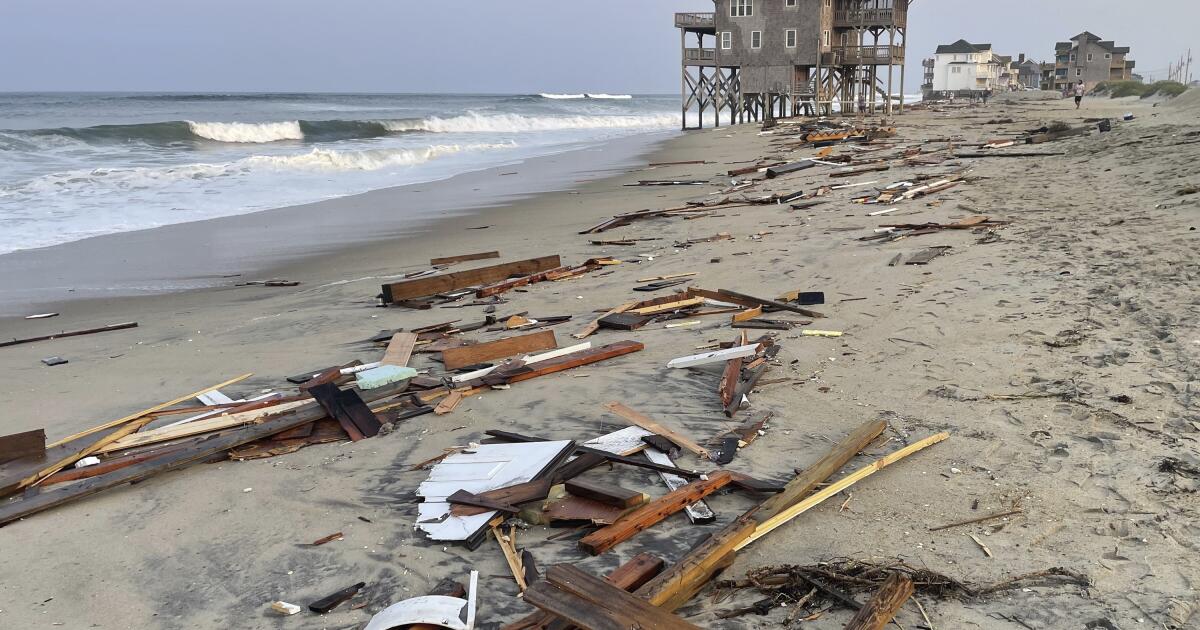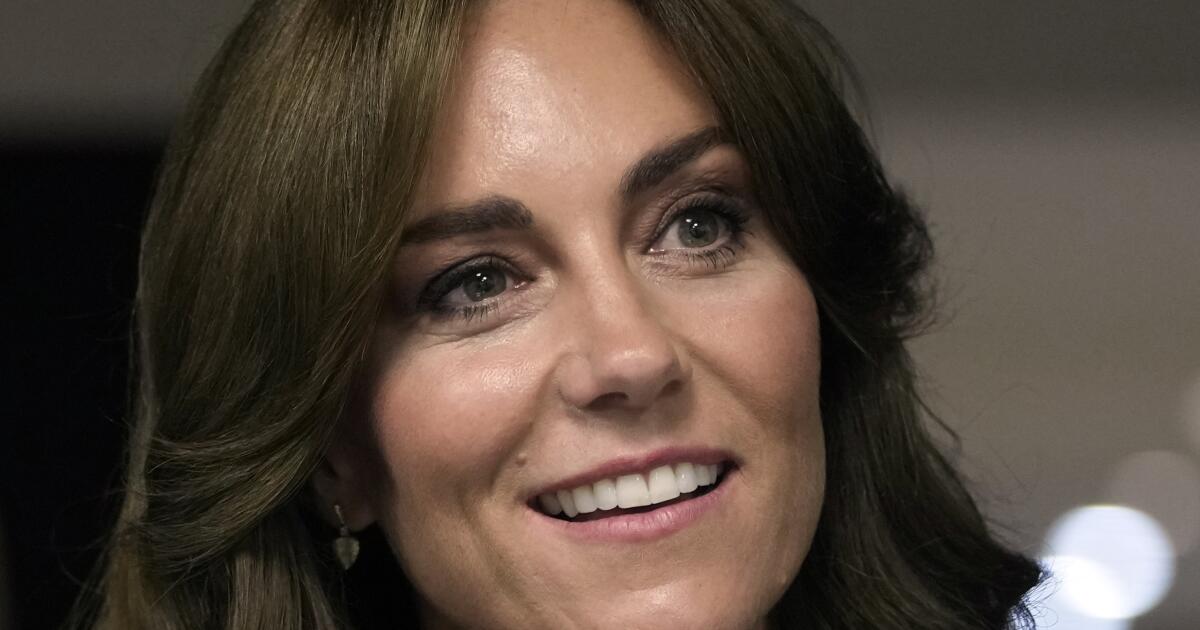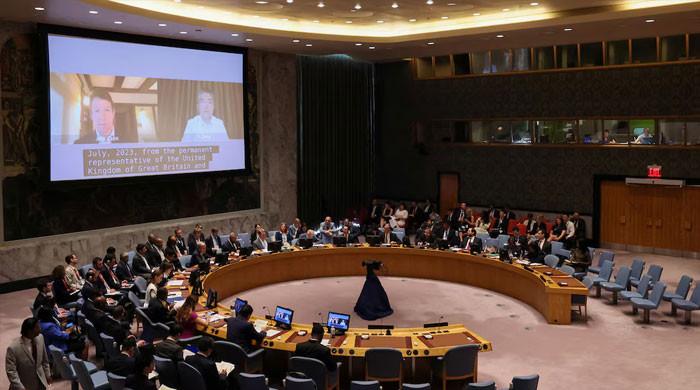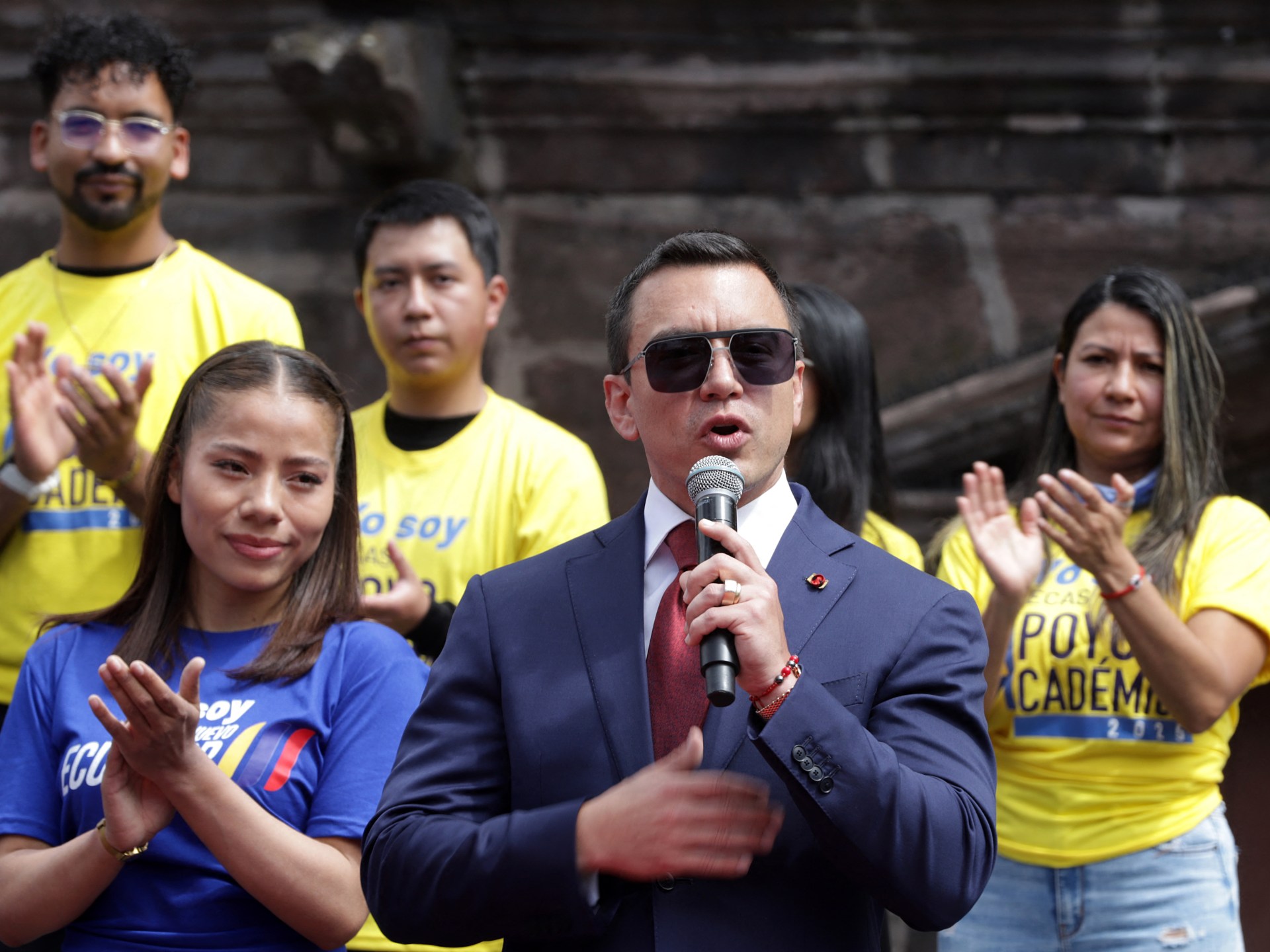Israeli airstrikes on the al-Mawasi camp in southern Gaza have killed at least 90 people and wounded 300 others, according to Palestinian health officials.
Saturday's attack on Israel's designated “safe zone” west of Khan Younis in southern Gaza involved fighter jets and drones, witnesses said.
Israeli officials said the attack targeted two senior members of Hamas' military wing, saying they were hiding among civilians.
Hamas has rejected the claim as “false” and saying it is a way to cover up the “horrible massacre” that took place in a place where displaced Palestinians were urged to seek shelter after being ordered to evacuate their homes elsewhere in the Strip.
Here's everything you need to know about the attack and its aftermath:
What is the situation on the ground?
The attack killed at least 90 civilians in a densely populated area home to some 80,000 people, according to the Gaza Health Ministry.
Israeli warplanes attacked tents housing displaced Palestinians and a water distillation unit.
Reporting from Deir el-Balah in central Gaza, Al Jazeera's Tareq Abu Azzoum said the area was hit by “five bombs and five missiles”.
Displaced people sheltering in the area said their tents were blown away by the force of the attacks and described bodies and body parts strewn on the ground.
“I couldn’t even know where I was or what was happening,” said Sheikh Youssef, a Gaza City resident who is displaced in the al-Mawasi area.
“I came out of the shop and looked around. All the shops were flattened, there were body parts everywhere, old women lying on the ground, little children torn to pieces,” he told Reuters news agency.
The wounded were taken to the Nasser Medical Complex in Khan Younis, which is severely short of staff and essential equipment. Rescuers say the Israeli army attacked teams on their way to help the victims.
An official at Nasser Hospital told Al Jazeera that medical teams did not have the capacity to receive more injured patients as civil defence teams continued to work on search and rescue operations at the site of the attack.
Mohammad Subeh, an emergency doctor working at one of the field hospitals near al-Mawasi, told Al Jazeera that rescuers were “pulling people off the ground”.
The al-Mawasi area has been repeatedly attacked by the Israeli military; in late May, an attack hit tents housing displaced families, killing at least 21 people.
What do Israeli officials say?
The Israeli military said in a statement that it acted on “accurate information” to strike an area where “two senior Hamas terrorists” and other fighters were hiding among civilians. It described the site of the attack as “an open area surrounded by trees, several buildings and sheds.”
Those targeted were Rafa'a Salameh, commander of Hamas's Khan Younis Brigade, and Mohammed Deif, head of Hamas's military wing, both accused of masterminding the Hamas-led attack on October 7 in southern Israel.
Speaking at the Defence Ministry headquarters in Tel Aviv, Israeli Prime Minister Benjamin Netanyahu said he was “not absolutely certain” that Hamas officials were killed in the attack, but maintained it had nonetheless been beneficial to Israel.
“The very attempt to assassinate Hamas commanders sends a message to the world that Hamas’s days are numbered,” he said. “And that is what I will do next week in the US Congress. I will convey Israel’s message to the US and to the entire world.”
Netanyahu said he approved the attack after receiving satisfactory information about the collateral damage and the type of ammunition that would be used. He added that the Israeli army will kill “one way or another” all Hamas leaders.
Al Jazeera's Hamdah Salhut, reporting from Amman, Jordan, said Netanyahu's directive to “target and kill Hamas officials wherever they are” – claiming he was carrying out precise and targeted attacks – had been repeatedly used as justification for targeting civilians in densely populated Gaza.
What do Palestinian leaders say?
Khalil al-Hayya, Hamas' deputy head in Gaza, said Netanyahu had wanted to declare a “false victory” and that claims about targeting Hamas leaders were false.
“Mohammad Deif is listening to you now and mocking your false and empty statements,” he told Al Jazeera Arabic.
Hamas had earlier issued a statement on Telegram calling on Palestinians in the occupied West Bank and occupied East Jerusalem to “mobilize” in response to the attack.
“We call on all resistance brigades to mobilize for Gaza and in loyalty to the blood of the martyrs,” the statement said.
The Palestinian Islamic Jihad (PIJ) armed group said in a statement that Israel “continues the war of extermination against our people.”
“This crime confirms that the occupation has ignored all international norms and covenants,” PIJ said.
Palestinian Prime Minister Mohammad Mustafa condemned Israel's “genocidal crimes” in Gaza and said Palestinians were “going through a very difficult time.”
Mustafa said Israel's actions were aimed more broadly at the Palestinian project as a whole and included Israel's goal of establishing an independent state with Jerusalem as its capital.
Hanan Ashrawi, an academic and activist, said the attack on al-Mawasi had “turned the whole of Gaza into a mass killing zone”.
“American bombs and shells are raining down on Gaza while the Israeli government and its thugs are successfully preventing any kind of medical, food or fuel supplies from reaching the devastated population,” he said in a post on X.
Today’s horrific massacre and savage bombardment of displaced Palestinians in the Israeli-designated “safe” areas of Mouassi and Khan Younis is the latest episode in an escalation that has turned Gaza into a vast killing zone. US bombs and shells rain down on Gaza while the Israeli army continues to attack Gaza.
— Hanan Ashrawi (@DrHananAshrawi) July 13, 2024
What is the situation under international law?
Francesca Albanese, the United Nations special rapporteur on the situation of human rights in the occupied Palestinian territory, told Al Jazeera that the attacks may have violated international law.
“People in a safe zone are protected by international law. If there is a military objective inside a safe zone, the action has to be proportional to the military advantage that will be achieved. Killing 70 people for one is not proportional,” he said.
“I am disgusted by Israel's tolerance of impunity, which allows a genocidal war,” he added.
In March, the UN expert issued a report stating there were “reasonable grounds” to believe Israel is committing genocide in Gaza.
How is the world reacting?
Egypt
“We condemn in the strongest terms the Israeli attacks in the area of Al-Mawasi,” the Egyptian Foreign Ministry said in a statement. The ministry stressed that “the constant violations of the rights of Palestinian citizens” add serious “complications” to achieving a ceasefire agreement.
Qatar
Qatar's Foreign Ministry said: “The repetition of these heinous crimes demonstrates day after day the need for urgent international action to immediately put an end to this brutal aggression and provide protection to the Palestinian people.”
He also warned that Israel's “recklessness” would undermine international efforts to implement a two-state solution, “thus paving the way for the expansion of the cycle of violence in the region and threatening international peace and security.”
Saudi Arabia
The Foreign Ministry called for “activating international accountability mechanisms” against Israeli abuses. “The Ministry of Foreign Affairs condemns in the strongest terms the continuation of genocidal massacres against the Palestinian people by the Israeli war machine,” it said in a statement.
Iran
Foreign Ministry spokesman Nasser Kanaani said the attack was the “latest crime in the series of crimes committed by the child-killing Zionist regime,” in a post on X.
“The Zionists have once again brutally demonstrated that in order to compensate for the defeats suffered on the battlefield with the resistance, they do not recognize any human and moral red line towards the defenseless inhabitants of the Gaza Strip, but they must know that insisting on this path is nothing but a broader global hatred.”
Jordan
Jordan's Foreign Ministry in a statement condemned the attack on the displaced people's tents. Spokesman Sufyan al-Qudah said Jordan denounces Israel's continued violations of international law and stressed the need for the international community to act to end Palestinian suffering.
Colombia
President Gustavo Petro expressed his outrage at what he called “the greatest injustice.”
“I am even more outraged because this destruction of international human rights is a prelude to the barbarism they want to unleash on all the oppressed peoples of the earth,” he said in a post on X.

